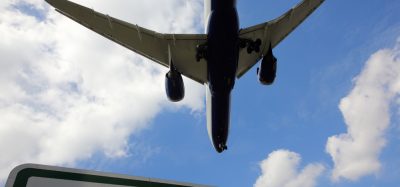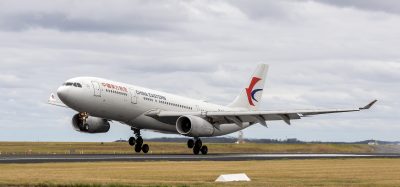Functional Airspace Block: Six States Go Forward With Common Air Traffic Management
- Like
- Digg
- Del
- Tumblr
- VKontakte
- Buffer
- Love This
- Odnoklassniki
- Meneame
- Blogger
- Amazon
- Yahoo Mail
- Gmail
- AOL
- Newsvine
- HackerNews
- Evernote
- MySpace
- Mail.ru
- Viadeo
- Line
- Comments
- Yummly
- SMS
- Viber
- Telegram
- Subscribe
- Skype
- Facebook Messenger
- Kakao
- LiveJournal
- Yammer
- Edgar
- Fintel
- Mix
- Instapaper
- Copy Link
Posted: 2 December 2010 | CANSO | No comments yet
The Ministers of Transport and high-level military representatives are signing the FABEC States Agreement…
The Ministers of Transport and high-level military representatives from Belgium, France, Germany, Luxembourg, the Netherlands and Switzerland are signing the FABEC States Agreement (Functional Airspace Block Europe Central) in Brussels/Belgium. With their signatures, the six States involved establish a common functional block of airspace and organise air traffic management irrespective of national borders. With this agreement, the States put a framework in place for air navigation service providers to improve their performance in terms of safety, environmental impact, capacity, cost effectiveness, shorter routes and military mission effectiveness. FABEC, which will handle about 55 percent of all flights in Europe and covers the most complex traffic areas between the busiest airports, is a major step towards the Single European Sky programme (SES) which is being put in place by the European Commission. The States Agreement is expected to be ratified by 2012.
By signing the FABEC Agreement the Contracting States commit to take the appropriate measures in particular in the domains of airspace, harmonisation of rules and procedures, provision of air navigation services, civil-military cooperation, charging, supervision, performance and governance. To govern this broad scope of responsibilities, a FABEC Council composed of civilian and military representatives with clearly defined decision-making powers will be set up. Based on its decisions, the Contracting States will establish the necessary national rules and procedures.
Furthermore, in July 2010 the FABEC States have started to study on the future institutional set up and governance of air navigation services provision. Initial results are indicating the need for a clear framework including the creation of a common entity providing FABEC functions to enable the performance improvements required. In the course of the coming 6 month further detailed work will be done on aspects like the legal setup, the involvement of the military or the detailed scope of functions and services. This process will be adequately accompanied by a constructive dialogue with the social partners. The six States will make every effort to arrive at a decision by July 2011.
To further strengthen the cooperation, the States will also sign a Memorandum of Cooperation between the six National Supervisory Authorities (NSAs). This document covers aspects such as the supervision of air navigation service providers and the establishment of a FABEC performance management system. As a first step FABEC States are preparing a common FABEC performance plan to set concrete targets for the years 2012-2014 in the areas of safety, finance, environmental impact, capacity and military mission effectiveness going a bit further than the EU-wide goals that the Commission will decide in cooperation with Members States by the end of 2010.
In 2008 a feasibility study showed that FABEC cooperation will enable air navigation service providers to handle the expected growth in air traffic volume at the same high level of safety and punctuality as they do now. In addition, a cost-benefit analysis demonstrated a potential benefit (net present value) of €7,000 million for airspace users by 2025 – mainly based on more efficient routes and less fuel consumption.
Although this figure was calculated before the financial crisis struck the aviation industry, it is still a valid indication that FABEC will benefit Europe as a competitive business location. Additional benefits are expected for the environment and, of course, for passengers who want to travel safely and punctually.
At the same time as the FABEC States Agreement was drafted, air navigation service providers commenced activities to improve performance. Based on a 5-year plan, 26 concrete activities for setting up management processes and initiating projects to immediately improve the productivity of air navigation services have been started. One example is the implementation of a Night Route Network. In one year’s time, 115 new routes have been implemented affecting mainly cross border traffic. By using these routes, airlines can shorten their total flight distance by 1.5 million kilometres per year. This results in savings of 4,800 tonnes of kerosene and 16,000 tonnes of CO2. In addition, several projects have been launched to redesign civil and military airspace at the intra-FABEC borders as well as the interface with UK airspace.
















